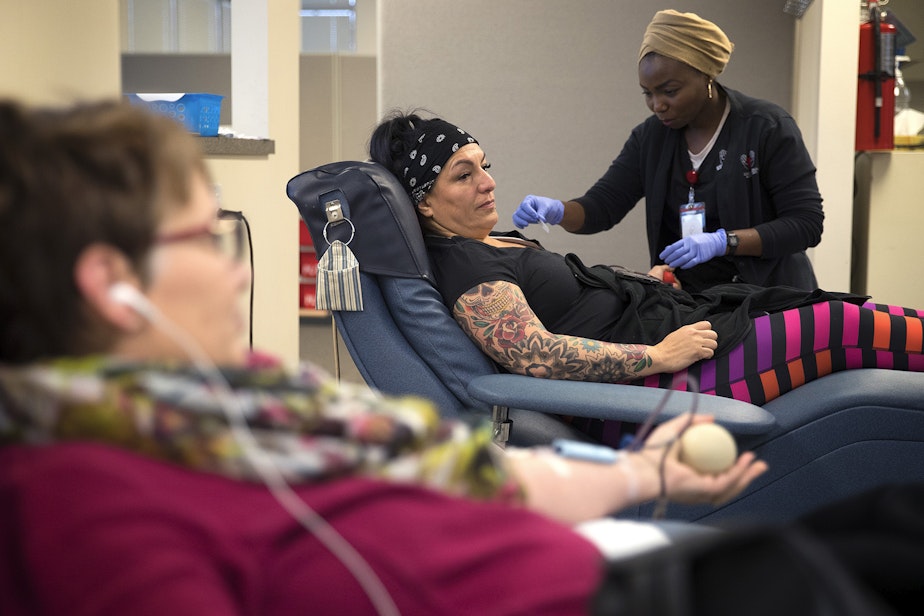Seattle has a blood shortage because young people don’t donate

Shortages are becoming more common at Seattle-area blood banks.
Fine. Blame millennials.
Baby boomers are star donors. They give blood a few times a year. At the same time, state hospitals are using blood donations more efficiently, pushing demand for blood down.
Nevertheless, as boomers get older and donate less, their younger counterparts are not stepping up.
Supply is not keeping pace. Right now, area blood banks are appealing for more donations, and Type O donors especially.
“The lack of donors is really the big issue right now,” said Brian Danforth, an executive at Bloodworks Northwest who works to supply hospitals with donated blood.
The blood bank is looking to appeal to millennials with technology and positive reinforcement.
Sponsored
“If you are a donor and you donated, you may get a text message saying your unit was just transfused at that hospital and you’ll get that message personally on your cell phone,” he said.
Bloodworks Northwest also has an app to schedule an appointment to donate.
State hospitals are making strides in reducing their demand for donated blood, said Darcy Jaffe, senior vice president for safety and quality at the Washington State Hospital Association.
For the past few years, the association has been working with hospitals to reduce the blood they use in heart surgery. The association did not have any data to share on the reductions, however.
“The big success is that we’re not wasting blood, and at the same time patients are getting excellent care and excellent outcomes,” she said.
Sponsored
The state hospital association is also looking to work with hospitals to reduce their use of blood donations during childbirth.
Pacific Northwest hospitals are leading the way in using less donated blood, said Sherri Ozawa, a nurse and the president-elect of the Society for the Advancement of Blood Management, a medical education and advocacy group.
“There are many ways to control bleeding in surgical arenas," she said. "There are ways to collect a patient’s own blood and return it to them, not pre-storing their blood, but directly in the operating room."
Blood transfusions are “dramatically over-utilized”, Ozawa said, and are often unnecessary and avoidable.
“For some patients, it’s the right therapy; for some patients, it’s helpful,” she said. “But that’s a much, much smaller number of patients than receive it.”




